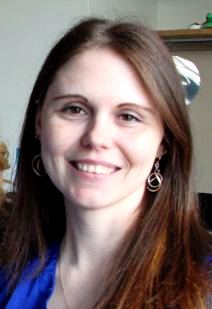Catholic Charities opens new addiction recovery program in Mercer County
People struggling to overcome opioid addiction are more vulnerable to the coronavirus because of its impact on respiratory and pulmonary health. At the same time, they’re more likely to experience homelessness or incarceration, which puts them at higher risk of catching and transmitting the virus.
That’s why Catholic Charities, Diocese of Trenton has started a new program to serve this vulnerable population, as the COVID-19 spread continues.
The agency recently received a $140,490 grant from the New Jersey Department of Human Services, Division of Mental Health and Addiction Services to coordinate medication-assisted treatment (MAT) county-wide, with the goal of getting more people on the road to recovery. The renewable grant started June 30 and will run for a year.
Removing barriers to treatment
 “The whole focus of the grant is building relationships and partnerships in the community and bridging gaps that prevent people from seeking recovery,” said Mischelle Kristofor (pictured, right), Catholic Charities’ director of addiction treatment. “We will work together as a community to support addiction recovery and remove barriers to treatment.”
“The whole focus of the grant is building relationships and partnerships in the community and bridging gaps that prevent people from seeking recovery,” said Mischelle Kristofor (pictured, right), Catholic Charities’ director of addiction treatment. “We will work together as a community to support addiction recovery and remove barriers to treatment.”
The new program is open to Mercer County residents amenable to the idea of MAT. MAT – the use of FDA-approved medications in combination with evidence-based behavioral therapies – has been proven to significantly reduce addiction and cravings, prevent relapses and re-establish healthy brain functioning.
A MAT coordinator will work with local hospitals, primary care physicians and other healthcare agencies and nonprofits to identify people struggling with addiction and link them with treatment, Kristofor said. The coordinator will also target individuals in the shelter system and those who are transient and able to be engaged on the street. The goal is rapid-access to services, with people connected to treatment within 48 hours of referral.
Catholic Charities will connect people with local providers while assessing and addressing other needs including housing, food, transportation, mental health, insurance and more. Community education and monthly meetings to coordinate care also are planned. Additionally, the grant covers personal protective equipment like face masks, as well as expanding and supporting telehealth services.
A continuing crisis
On average, 130 Americans die every day from opioid overdoses, according to the Centers for Disease Control and Prevention. More than 1,300 people have died by overdose in New Jersey during the first five months of the year, state statistics show. Even more people have been saved with the overdose-reversing drug Naloxone – and Mercer County is on pace to increase Naloxone administrations by 20 percent from 2019 to 2020, state data shows.
“Opioid use disorder and overdose numbers are ever-increasing. With the ongoing COVID pandemic, people suffering with addiction are more vulnerable than ever,” Kristofor said. “The pandemic requires social isolation to prevent the spread of the virus. Yet social isolation can increase depression – and that can increase substance use. At the same time, this population doesn’t have the best access to medical care. That can lead to more COVID complications and health consequences. This grant gives us the opportunity to create plans to address the complex needs of this vulnerable group. By linking people to all the help they need in addition to addiction treatment, we can break down barriers to long-term recovery and stability, and they can focus more fully on their wellness.”
Subscribe for more news
For more information, contact Mischelle Kristofor, director of addiction treatment, at [email protected]; or Dana DiFilippo, Catholic Charities communications, at [email protected] or (215) 756-6277 (cell).
To subscribe to our blog posts and news releases, fill out the fields below.


Medication-assisted treatment helps mother overcome addiction and put family first - November 9, 2020, 8:49 am
[…] and cravings, prevent relapses and re-establish healthy brain functioning. Catholic Charities received a state grant last summer to coordinate MAT services county-wide, with the goal of getting more people on the road to […]